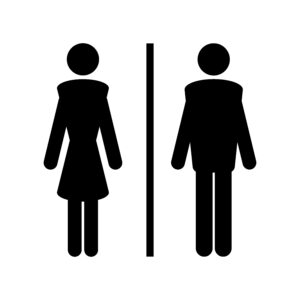Catholic schools should avoid enrolling students at odds with their birth gender, says Archdiocese of Denver
The Catholic Archdiocese of Denver has instructed its schools to discourage enrolling transgender or transitioning kids, as well as to exercise “extreme caution” in admitting children of same-sex…

The Catholic Archdiocese of Denver has instructed its schools to discourage enrolling transgender or transitioning kids, as well as to exercise “extreme caution” in admitting children of same-sex parents.
The official guidance document warns such circumstances are likely to lead to “intractable conflicts.”
For those students already enrolled, the guidance prohibits the use of pronouns “at odds with the student’s biological sex,” and advises teachers against promoting LGBTQ identities among students and staff.
Similarly, teachers and administrators in the diocese are warned against pursuing transitions to another gender for themselves, as it would render them “not suited to teach in a Catholic school or to carry out the school’s mission in any capacity.”
Recognizing the genuine struggle some students may have with gender ideology, the guidance addresses these issues with compassion and sensitivity, but necessarily draws a line between those who are openly exhibiting a transgender identity and students who are confused about their sexuality but haven’t “taken steps to transition, nor overtly rejected his or her given sexual identity or asserted an alternative ‘identity.’”
Since children struggling with their identity may be well-served by a Catholic education, teachers and administrators are encouraged to determine whether confused students and their families are prepared to adhere to church standards if enrolled.
In a move that has stirred opposition from LGBTQ activists, the church has clearly defined the meaning of “family” as it relates to compatibility with Catholicism.
The archdiocese asserts “a Catholic school cannot treat a same-sex couple as a family equivalent to the natural family without compromising its mission and Catholic identity and causing confusion about the nature of marriage for all students enrolled.”
In an interview with a local Denver news station, Nadine Bridges, executive director of One Colorado, the state’s leading LGBTQ advocacy organization, called the guidance document “disheartening.”
“When you are creating a space where some people can be accepted and other folks are not, then you are discriminating,” Bridges said. “I wish that the members of the archdiocese would actually sit down with the community and have a really honest and authentic conversation on being inclusive.”
That theme was echoed by Shara Smith, executive director of the Interfaith Alliance of Colorado, a coalition of various religions playing an active role in Colorado’s progressive political sphere.
“Religious trauma is an ever-present reality for many faithful Coloradans who continue showing up with sincerity, only to find out that they are unwelcome by their own faith families – not because of a lack of faith, but simply for being different,” said Smith. “We sincerely pray for the health and well-being of those families on the receiving end of these kinds of policies and maintain hope that our faith can be the force that brings us together rather than something that drives us apart.”
The Interfaith Alliance boasts members from Muslim, Hindu, Sikh, and Protestant Christian denominations, but has no Catholic representation in the group. It does, however, have several staff and board members who assert sexual and gender identities opposite those of their birth.
Despite the backlash, the guidance document is not new, having been issued in 2019. The current controversy was stirred by a Nov. 7 article in the Denver Post, which apparently only now became aware of its existence.
The controversy also is reminiscent of the recent uproar over a similar document released by the Archdiocese of Omaha. That guidance was set for implementation in January, but has been postponed until fall 2023 to give time for the archdiocese to reword some of the phrases to which certain members of the community took offense.
Revisions are underway and will be released next summer. The archdiocese, however, has been clear in stating the revisions will pertain to how standards are stated, not the standards themselves. The Omaha document expresses the same standards as the earlier one from Denver.
The urgent push for gender-affirming policies among public schools has forced Catholic schools nationwide to reassert authority over student and teacher conduct, as the limits of behavior are increasingly tested.
The Catholic Church holds fast to the natural order of male and female as established at the time of creation. As the Denver guidance document states, “the spread of gender ideology presents a danger to the faith of Christians.”
Archdioceses across the country are currently engaged in reaffirming the importance of fundamental church doctrine as it relates to Catholic schools.
Jeremy Ekeler, associate director of education policy for the Nebraska Catholic Conference, speaking to the Omaha World Herald, noted the policies simply define “Catholic teaching regarding the sanctity of the body, marriage, and sexuality.
“Despite the cultural forces claiming that sex is one’s identity and gender is self-defined, Catholic schools maintain the truth of self-dignity and the value of self-respect as children of God.”



